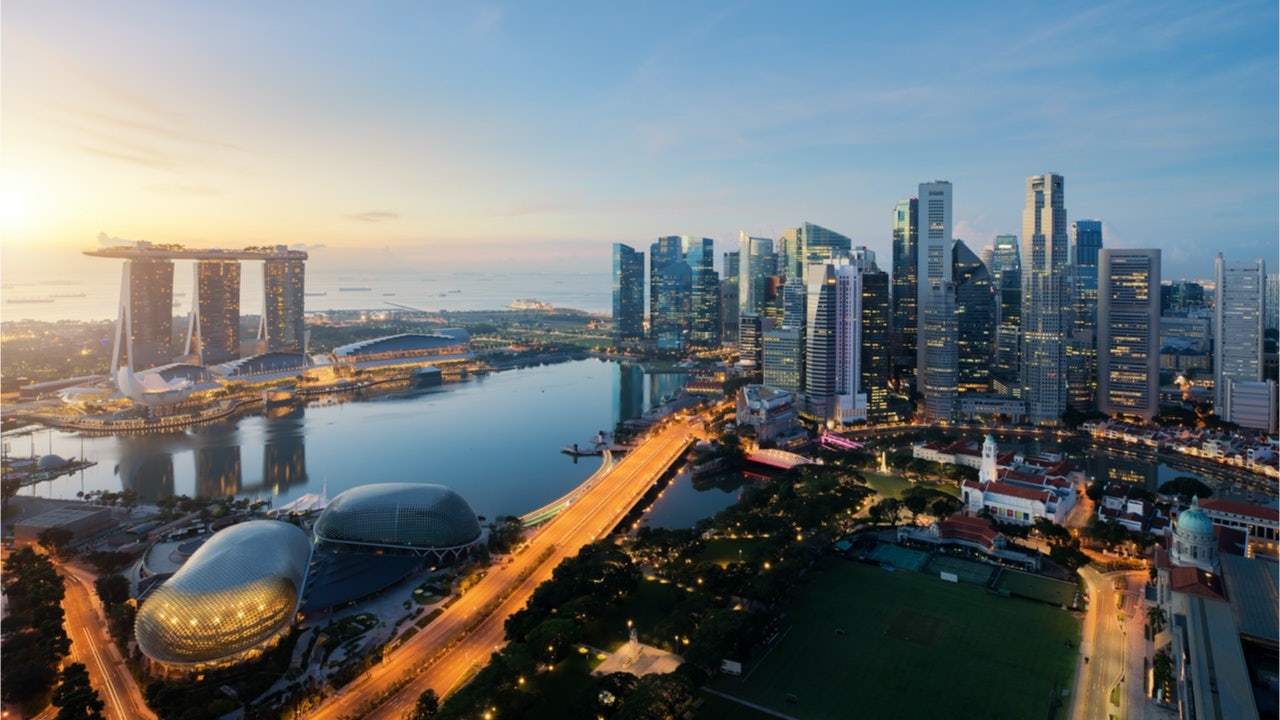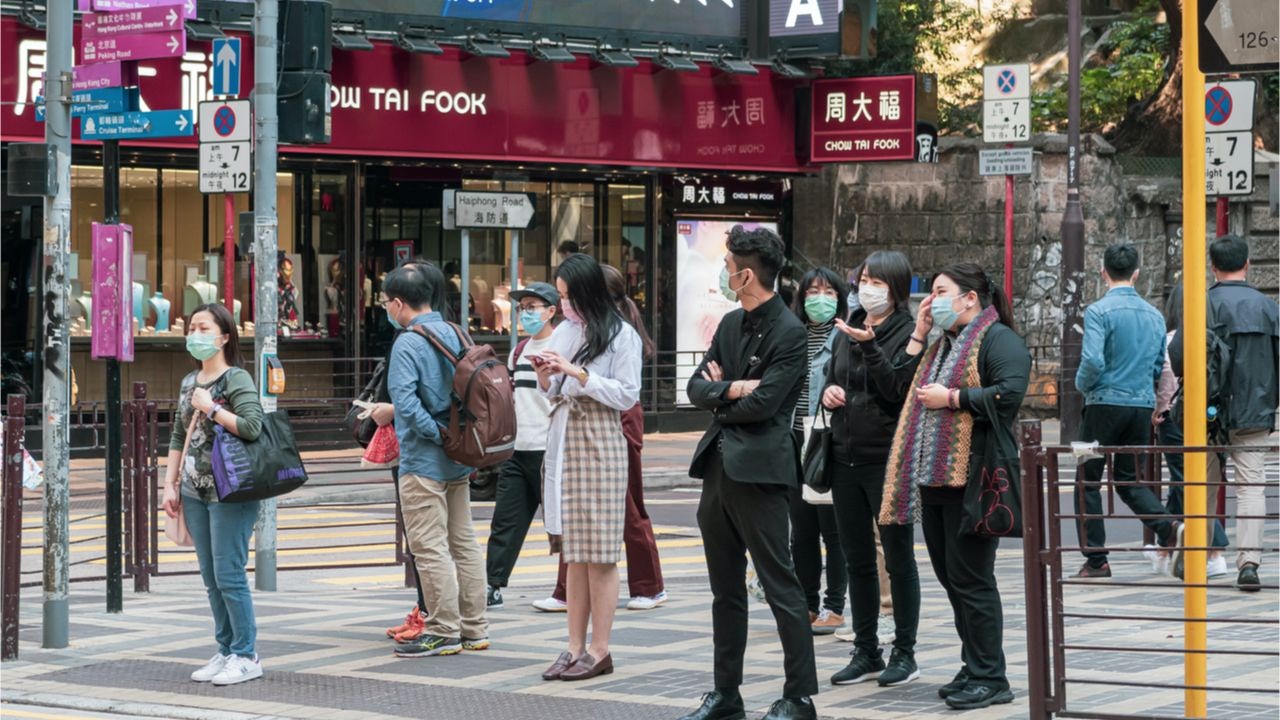Following Beijing’s newly proposed national security law, the Guardian dramatically announced that this would be “the end of Hong Kong.” It might seem like an overreaction, but reality shows that Hong Kong has been sinking into chaos since March of 2019. Anti-government protests and COVID-19 have kept wealthy mainland Chinese tourists and investors away from the Special Administrative Region for over a year, and these months of turmoil have naturally come with a high economic cost.
The Hong Kong Tourism Board announced the city’s visitor arrivals fell by a whopping 98.6 percent year-on-year during March, while CNN said Hong Kong’s economy shrank 1.2 percent, and its GDP shrank 2.9 percent in the fourth quarter of 2019.
Retail has been hit particularly hard, with sales falling by 42 percent in March compared to a year ago. Furthermore, the South China Morning Post highlights how consumer spending registered a record drop, falling to 2.9 billion (22.7 billion HKD). And according to The Hong Kong Retail Management Association (HKRMA), about 25 percent of retail stores are expected to close by the end of 2020.
Bearing this dramatic situation in mind, investors have started thinking about other financial and business hubs in the region that could potentially replace Hong Kong, and Singapore, which is a top regional luxury destination, is a strong contender.
With an economic freedom score of 89.4, Singapore has been the world’s freest economy thus far in 2020. Hong Kong came in second with a freedom score of 89.1.
Several investors are more optimistic about Singapore’s rebound than Hong Kong’s, and some data encourages that opinion. For example, a survey conducted by Comptify Analytics shows that during the Covid-19 crisis, twice as many Hong Kong employers laid off staffers than their Singaporean peers.
“Singapore is tending to apply less ‘destructive measures’ including furlough and redundancy to employment when it comes to cost-saving at this stage,” said Vincent Fung, managing consultant for Comptify Analytics to the South China Morning Post. This suggests some “cautious optimism about an economic rebound for the Singapore market.”
Retailers and executives have valid reasons to consider moving to Singapore, but there’s a long road ahead before the Asian Tiger becomes “the new Hong Kong.”
Westerners tend to identify the two thriving gateways to Asia as twins, but they are distinctive markets that cater to separate segments. Singapore is a local economic leader, and Hong Kong is an “extension” of China. Oversimplified, global businesses that want a strong footprint in China must be present in Hong Kong.
Let’s take a look at some reasons why Singapore won’t replace Hong Kong as a financial hub in the near future:
Economic challenges#
Singapore’s GDP grew by a modest 0.7 percent in 2019, compared to 3.1 percent over 2018 — and the figures for 2020 aren’t encouraging. In fact, greater market deceleration is expected later this year. Singapore’s Ministry of Trade and Industry said in a statement that the Singapore economy is expected to shrink by between 1 and 4 percent across 2020.
The COVID-19 epidemic left a strong mark on Singapore’s economy, and analysts expect home prices to fall by as much as 3 percent during 2020. Moreover, the marine, offshore engineering, tourism, retail, and aviation industries have struggled to cope with the travel restrictions, and recent forecasts show that this island city-state is headed into its “worst-ever recession in nearly two decades.” According to the South China Morning Post, the crisis could prompt Prime Minister, Lee Hsien Loong, to call a general election. In short, the economic and political consequences of the pandemic have been severe.
The ripple effect#
The idea that Singapore would greatly benefit from chaos in Hong Kong is also unrealistic. The two cities are major trading partners, so disruptions in Hong Kong also hurt Singapore.
The Ministry of Foreign Affairs of Singapore states that the two Asian power players have strong economic ties. In 2018, Hong Kong was Singapore’s 5th largest trading partner, with total bilateral trade amounting to 50 billion (70.6 billion SGD). It’s also the city’s fourth-largest cumulative investment destination.
Wenda Ma, a senior economist at the Hong Kong Trade Development Council, said in a 2015 report that the two regional powers have many similarities. “Both are small, open economies with no natural resources, but have developed into international trade and services centers in Asia,” Ma wrote. “From a regional development perspective, the two economies are nodes connecting the hinterlands of mainland China and Asian countries, which are set to strengthen economic ties and integration.”
Geolocation#
The dependence of the luxury industry on the Chinese consumers is well documented, so Hong Kong’s proximity to the mainland gives it a winning edge over other regional cities. The close business links between Hong Kong and Beijing makes the city the ideal location for enterprises that want to do business with China or invest in mainland companies while still maintaining legal and entrepreneurial flexibility.
From a luxury retail perspective, businesses need to be close to Chinese consumers, and Hong Kong offers this proximity. Indeed, mainland luxury shoppers are currently avoiding Hong Kong and record-low tourist figures have been reported, but there’s no guarantee wealthy Chinese will flock to Singapore. And WWD reports that Tokyo, Seoul, and Singapore are all battling for these affluent Chinese shoppers.
Assuming that Singapore can fight off highly developed luxury hubs like Tokyo, Macao, or Seoul is arrogant. And so far, there’s no evidence of this direction.
Size matters#
The Lion City is not only geographically smaller than Hong Kong, but its luxury industry is also smaller, less relevant, and not as glamorous.
Singapore might have the scintillating Esplanade Mall, The Shoppes at Marina Bay Sands, and Louis Vuitton’s floating Island Maison, but Hong Kong takes luxury to a different level. From its state-of-the-art, cutting edge malls to the chicest hotels and most lavish experiences, Hong Kong does extravagance with a nonchalance that few places in the world can pull off.
Singapore’s luxury economy is still in its preliminary phase, developing at an incredible speed yet still evolving. There’s not a strong, independent retail scene like there is in Tokyo or Seoul — cities where shoppers can choose between established European names like Prada or Gucci and local, avant-garde designers. The small shops on Harajuku are as popular as those in Ginza, which is what makes Tokyo a cool luxury destination. Singapore doesn’t have that edge yet.
Singapore’s future looks bright, despite some setbacks. But, Hong Kong’s struggle isn’t a real opportunity for the Lion City, and it won’t replace Hong Kong as the top luxury hub in the region in the near future. We assume that Macao, Guangzhou, and Shenzhen will grow in importance, and Tokyo, Seoul, Kuala Lumpur, Bangkok, and Singapore will continue to exercise authority as regional shopping destinations. All these cities are equally important, but none will replace Hong Kong anytime soon.

